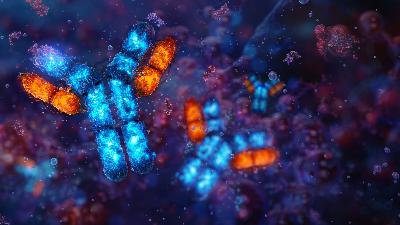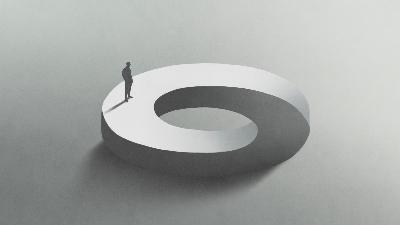Zombie Bioethics
Update: 2025-09-29
Description
By Aaron Kheriaty at Brownstone dot org.
The following was published recently in First Things and is reprinted here with permission.
A recent article in MIT Technology Review carries the strange title, "Ethically sourced 'spare' human bodies could revolutionize medicine." Three Stanford biologists and ethicists argue for the use of so-called bodyoids in science and medicine. This infelicitous term refers to hypothetical modified human bodies created from stem cells - bodies that have been genetically altered so that they lack brains, and thus, presumably, are without consciousness.
The authors acknowledge that we do not yet have the technical capability to create such beings, but recent advances in stem cells, gene editing, and artificial uteruses "provide a pathway to producing living human bodies without the neural components that allow us to think, be aware, or feel pain."
Strictly speaking, artificial uteruses are not necessary for the development of bodyoids. Such a reprogrammed embryo could theoretically be created in a lab and implanted in a woman's uterus, as is done with IVF. But the notion that an entity regarded as subhuman should be born from a human mother seems too gruesome even for these bioethical pioneers to contemplate.
The authors admit that many will find the prospect of bodyoids disturbing, but they argue that a "potentially unlimited source" of "spare" human bodies will be immensely useful and should be pursued. We could, for example, harvest the organs of these presumably nonsentient humans and conduct experiments on them in order to test drugs and other medical interventions.
The authors even suggest that it would be more ethical to do drug testing on humans who cannot feel pain, because they lack nervous systems, than on animals that can feel pain. There are other potential benefits for animal species as well, they aver, since we could use animal bodyoids to avoid causing pain and suffering in the cows and pigs we slaughter for food.
Human bodyoids are not entirely within the realm of science fiction. Scientists have recently produced "embryoids," or "synthetic embryos," from reprogrammed stem cells, without the use of sperm and eggs. Embryoids are living entities that seem to develop as human embryos do but that presumably lack the capacity for full human development.
(We do not know for sure that they do, as they are typically destroyed after fourteen days, before the heart and brain have begun to develop.) Just as advocates for embryoids argue that their innovation allows us to avoid the ethical problems associated with embryo-destructive research, so advocates for bodyoids propose to provide us with "ethically sourced 'spare' human bodies."
The Christian ethicist Oliver O'Donovan described "a position too familiar to technological society, that of having achieved something that we do not know how to describe responsibly." In the case of bodyoids, I submit, advocates do not know how to describe them at all. One can hear them stumbling over their words and fumbling with descriptors.
Bodyoids are human bodies. Or rather, human-like bodies. But not human in any morally relevant sense - they lack brains, after all. But sufficiently human that we can harvest their organs for transplant and conduct experiments on them to see how "real" humans would respond to drugs. Indeed, they are of interest to scientists precisely because they are so, well, so very human. But not really. For the most part.
Well, then, what are human bodyoids?
Long before ethicists began to contemplate living - or at least, undead - human creatures who lack all brain function, such entities were explored in science fiction and horror films. The precise name for such a creature is zombie. The concept has roots in Haitian folklore, where the term is zonbi, referring to a person who has been brought back from the dead through magical means to serve as a mindless slave.
The problem with creating zombies, our stories suggest, is that...
The following was published recently in First Things and is reprinted here with permission.
A recent article in MIT Technology Review carries the strange title, "Ethically sourced 'spare' human bodies could revolutionize medicine." Three Stanford biologists and ethicists argue for the use of so-called bodyoids in science and medicine. This infelicitous term refers to hypothetical modified human bodies created from stem cells - bodies that have been genetically altered so that they lack brains, and thus, presumably, are without consciousness.
The authors acknowledge that we do not yet have the technical capability to create such beings, but recent advances in stem cells, gene editing, and artificial uteruses "provide a pathway to producing living human bodies without the neural components that allow us to think, be aware, or feel pain."
Strictly speaking, artificial uteruses are not necessary for the development of bodyoids. Such a reprogrammed embryo could theoretically be created in a lab and implanted in a woman's uterus, as is done with IVF. But the notion that an entity regarded as subhuman should be born from a human mother seems too gruesome even for these bioethical pioneers to contemplate.
The authors admit that many will find the prospect of bodyoids disturbing, but they argue that a "potentially unlimited source" of "spare" human bodies will be immensely useful and should be pursued. We could, for example, harvest the organs of these presumably nonsentient humans and conduct experiments on them in order to test drugs and other medical interventions.
The authors even suggest that it would be more ethical to do drug testing on humans who cannot feel pain, because they lack nervous systems, than on animals that can feel pain. There are other potential benefits for animal species as well, they aver, since we could use animal bodyoids to avoid causing pain and suffering in the cows and pigs we slaughter for food.
Human bodyoids are not entirely within the realm of science fiction. Scientists have recently produced "embryoids," or "synthetic embryos," from reprogrammed stem cells, without the use of sperm and eggs. Embryoids are living entities that seem to develop as human embryos do but that presumably lack the capacity for full human development.
(We do not know for sure that they do, as they are typically destroyed after fourteen days, before the heart and brain have begun to develop.) Just as advocates for embryoids argue that their innovation allows us to avoid the ethical problems associated with embryo-destructive research, so advocates for bodyoids propose to provide us with "ethically sourced 'spare' human bodies."
The Christian ethicist Oliver O'Donovan described "a position too familiar to technological society, that of having achieved something that we do not know how to describe responsibly." In the case of bodyoids, I submit, advocates do not know how to describe them at all. One can hear them stumbling over their words and fumbling with descriptors.
Bodyoids are human bodies. Or rather, human-like bodies. But not human in any morally relevant sense - they lack brains, after all. But sufficiently human that we can harvest their organs for transplant and conduct experiments on them to see how "real" humans would respond to drugs. Indeed, they are of interest to scientists precisely because they are so, well, so very human. But not really. For the most part.
Well, then, what are human bodyoids?
Long before ethicists began to contemplate living - or at least, undead - human creatures who lack all brain function, such entities were explored in science fiction and horror films. The precise name for such a creature is zombie. The concept has roots in Haitian folklore, where the term is zonbi, referring to a person who has been brought back from the dead through magical means to serve as a mindless slave.
The problem with creating zombies, our stories suggest, is that...
Comments
In Channel























